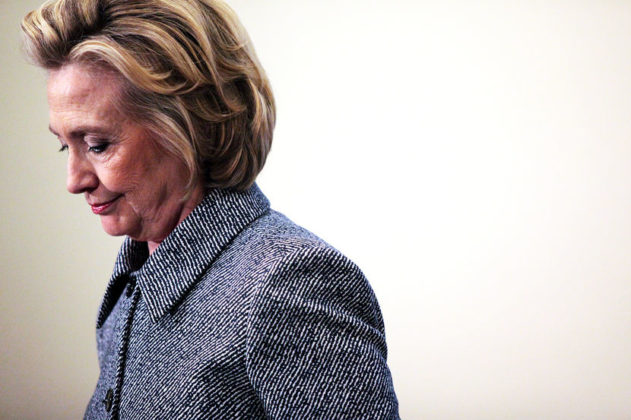Maybe Clinton wasn’t just a woman who failed other women. Maybe a woman, at some point, had failed her, too.
Many of us have been disappointed by women. Girlfriends who didn’t keep your confidence or, maybe worse, judged you for whatever it was you shared with them. Moms that let abuse happen. Or worse, moms who were the abusers.
One of my disappointments came when I was 22, at my first job. When I gently turned down a sexually aggressive dean at the school where I taught 3rd grade, PS 219, the attention turned threatening and intimidating. I reported it to the principal, who was a woman. After reviewing all 22 pages of incidents that had happened in the previous months, she told me that we just needed to get along. I was notified that I would be moved to a different building to teach a different grade, starting a year of lessons over from scratch. He remained unpunished and in the same position. And I left teaching.
It was this story that occurred to me as I’ve read recent accounts of Hillary Clinton allowing a male harasser to stay on her team. According to the New York Times, a man that Clinton used as a spiritual advisor had harassed a 30-year-old woman who worked for her campaign. Against the advice of her own campaign manager, Clinton refused to fire Burns Strider. Instead, he was docked pay and sent for counseling he never bothered to get (he would later be fired for harassing another woman during his work for the 2016 campaign). The woman—the victim—was told to move from her office and sent away to work on another part of the campaign.
Clinton, in response to this story, said she was “proud” the young woman had “come forward [and] was heard.” But what she fails to note is that what’s most important in these incidents of abuse and assault is not that we merely hear these stories, but how we respond.
If I’m honest, I’ve never quite gotten why Hillary Clinton is held up as a feminist icon. This may be one of those millennial divides, a generational gulf that is hard to breach. My introduction to Clinton was as a First Lady, a position defined around femininity and domesticity. Then, later, as a wife who condoned and defended a husband repeatedly accused of sexually harassing and abusing women. When a blue dress revealed Bill Clinton’s affair with Monica Lewinsky as a truth that both he and his wife very publicly denied, I was in high school. The young intern of whom he took advantage was not much older than me. And Hillary, to me, was the wife who had disparaged this young woman to stand by a man the entire nation now knew was a liar and a cheater.
When, after her husband’s presidency, Hillary became a Senator after never before holding an elected office, it seemed to run counter to the feminism I grew up with. Her success and power seemed, at least to me, to rely too heavily on her proximity to her husband and his career.
As an adult, I would learn more about her career as a successful lawyer, pushing against the grain of most political wives. I would find out that she heralded issues of women and girls, and spoke up for working moms. But that all felt like mere rhetoric to me, tainted by comments maligning poor black women or calling black children super predators to advance efforts that would punish them more harshly.
This latest revelation about Clinton’s cowardice and complicity in confronting sexual harassment on her own staff only further justifies my suspicions. I was concerned that as a president Clinton would leave her husband unchecked despite his history of being sexually involved with subordinates. And I was concerned that her loyalty to women began and ended with herself and her family.
But this story also made me consider something I hadn’t thought about before—the role of religion in Clinton’s life. Strider was her religious leader of sorts, a man who emailed her every day with comforting scriptures. And she, the former Sunday School teacher, seemed to hold him in high regard. I am reminded of the advice my mother received from a pastor to stay with an abusive husband. It was advice this same pastor also extended to the wife of a deacon who was a sexual predator in the same church. There are many, many such stories of abuse and cover-ups in religious settings, prime places in which predators can exploit faith and trust.
Maybe Clinton wasn’t just a woman who failed other women. Maybe a woman, at some point, had failed her, too.
An old scripture verse says that what happens in the dark comes out in the light, and so it has here too. But this is different than other accusations that have come out against Clinton over the last year—this is more than just a distraction from the evils of the Trump administration. In the wake of #metoo, a movement spurred somewhat ironically by Clinton’s presidential loss, this is relevant because Clinton is beloved by many women as a figure they hold up high. And she failed us here. In yet another scenario, she had to choose between protecting a younger woman staffer and an older man for whom she cared, and she chose wrong.
Hillary Clinton is not president. Her condoning sexual harassment is just another thing that mars her personal legacy, rather than undercutting an active administration. But it reminds us that the movement against sexual harassment and abuse is not just about targeting individual men who abuse women, but every single person in this system who allows such harm to continue.
Khadijah White is an Assistant Professor in the Department of Journalism and Media Studies at Rutgers University. She is currently writing a book on the rise of the Tea Party brand in news.
Other Links:

